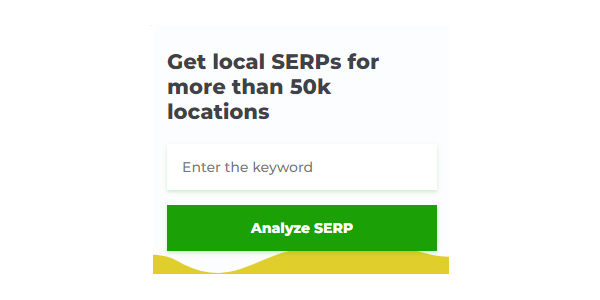Why a real estate website could be your biggest business asset
Your website must not only effectively and distinctively communicate your brand, but also function as your sales force that operates 24 hours a day. Your website has the ability to become your company’s most influential marketing tool.
Real estate agents dedicate a significant amount of time surfing the internet, recognizing that their clients also engage extensively online.
Buyers are conducting research on the home transaction process, seeking to comprehend mortgages, and exploring listings. On the other hand, sellers are familiarizing themselves with current home decorating trends, deciding which projects to complete prior to listing (and which to postpone for the future homeowners), and examining recent list-to-sales prices for their neighbors.
According to the National Association of Realtors’ most recent Profile of Home Buyers and Sellers, over 50% of buyers begin their home purchase process on the internet. The following presents a summary of the initial actions taken by buyers, as reported by NAR:
- 44% look online for homes
- 17% talk to an agent
- 11% look online for information
- 7% contact a mortgage lender
- 6% talk to a friend
- 6% drive around looking at homes
To make a positive impact on potential homebuyers who primarily rely on the internet for housing information, real estate agents must establish an online presence. However, simply creating a basic website with minimal details such as your name, contact information, and “real estate in My Town” will not yield significant lead generation.
A lot of real estate agents fail to seize the chance to connect with potential clients in advance, without even knowing they might become a lead. Once a prospective buyer or seller comes across your website, it ought to be brimming with invaluable resources that captivate visitors, guiding them through a labyrinth of real estate knowledge and guidance.
Building your real estate website with purpose
Approach the project, whether it be building a website from scratch or optimizing an existing one, with a strategy-first mindset rather than focusing solely on execution. Ensure that your planning process is purposeful and comprehensive.
Five focal points of a website
In The McGraw-Hill 36 Hour Course: Online Marketing, Lorrie Thomas explains that a strategic website is primarily designed to serve, support and generate sales. According to Thomas, there are five key components that should be the main priorities for your website.
To gain the trust of visitors, your website must establish credibility by making a strong initial impact and consistently nurturing trust through all its content offerings.
In order for users to have a positive experience engaging with your website, various factors such as its design, architecture, navigation, call to actions, and content contribute to its usability.
The visibility of your website and overall online marketing is a vital aspect. Visibility can be achieved through various marketing channels such as advertising, search engines, social media marketing, public relations, and email.
Your website should effectively communicate the reasons why visitors should take the intended action by showcasing compelling content such as pages, posts, images, and videos. Clear value propositions need to be highlighted.
Scalability – An optimal website is designed to support future growth. Ideally, you should have the capability to easily expand your site without constant reliance on coders and IT professionals.
Basic requirements for making a real estate agent website
If you are ready to create a website, now is the perfect moment to consider how to ensure people have a enjoyable interaction with it. There are three essential aspects to focus on when designing and hosting your real estate website:
1. Strong SEO
We have previously discussed the importance of a real estate agent establishing a blog on their website to demonstrate their proficiency. However, having a blog can offer even greater advantages, ultimately assisting in attracting a larger number of potential clients.
When improving your site or blog content, search engine optimization aims to make it more relevant and appealing to search engines.
Getting assistance from third-party SEO specialists is typically advisable as they can provide comprehensive suggestions for enhancing your website’s visibility in search engines through natural or algorithm-based search outcomes.
Even though giants like Zillow, Trulia, and Realtor.com dominate the real estate market, by prioritizing local rankings and adjusting your SEO strategy, there is still a possibility of achieving a high ranking on Google.
2. A smart domain name
When selecting a domain name for your website, it is crucial to make an effective choice. This decision is typically permanent, so it is essential to avoid any errors and successfully establish your business’s connection to the market from the very beginning. Here are some tips to keep in mind.
- Keep it short, professional, and consistent with your personal brand identity.
- Try using keywords connected with the real estate industry.
- Avoid using your own name unless your reputation is already well-established.
- Refrain from using acronyms or abbreviations.
- Ensure the spelling is not funky.
- Buy misspelled variations of your domain so that users were not redirected to other websites when attempting to reach you.
3. Intuitive navigation and responsive design
A real estate website usually has a lot of information which can make it challenging to navigate. However, providing a good user experience means that individuals should not have to spend time figuring out how to navigate your website.
On your site, make sure to provide the necessary information to ensure the proper functionality, just like a life jacket that one confirms during safety instructions but does not constantly check its position. Instead, individuals should know where to locate the jacket when needed.
- A contact page
- An About Us page
- Users can get to any page from any page
- A good-looking, informative, and interactive menu
- An optimal viewing and interaction experience
Must-have features of a real estate website
In addition, a fundamental compilation of features forms the foundation of a real estate site. The necessary elements for constructing a real estate website encompass the subsequent list of site features.
1. Multiple listing services access
MLS integration is crucial for a well-functioning real estate agent website as it establishes a direct connection between the site and the local MLS database, facilitating accessibility to multiple agents for sellers and property owners. This connection enables the visibility and availability of listed properties on the site, as MLSs serve as databases for properties available for sale within a specific area.
Although the integration process itself is straightforward and convenient, the drawback of this type of integration is that it does not provide exclusive access. The integration relies on the Internet Data Exchange (IDX) to retrieve property listing data from Multiple Listing Services (MLSs) and incorporate it into your website.
2. Live search
Accurate outcomes must be generated by searches conducted for real estate properties and rentals.
To make it possible, users should be offered an extensive range of search filters such as listing category (buying, renting, or selling), price range, type of residence, number of bedrooms, amenities, facilities, year of construction, and additional criteria. Furthermore, a dedicated feature will enable users to accurately define their search boundaries in order to locate properties within their desired neighborhood.
3. An adequate set of images for each real estate asset
The success of a website is determined by the number of deals closed with its assistance, although intuitive navigation and responsive design ensure a pleasant user experience for visitors. However, capturing the interest of potential buyers or tenants is the initial step.
The interest is aroused by property images that have a professional appearance. The pictures, which are both relevant and high-resolution, are self-explanatory, hence it is advisable to establish stringent criteria for the size, format, and resolution of photos on your platform.
4. Video or virtual excursions
A visit to a specific residence reveals more about a property than even the most detailed and high-quality collection of images. While a video tour is a good substitute, Augmented and Virtual Reality technologies offer users a broad yet comprehensive understanding of both the interior and exterior design.
5. Messaging
In order to discover an ideal location, it is crucial for a buyer to effectively communicate their needs, while sellers and real estate agents must provide appropriate responses to these inquiries.
An inbuilt messaging tool should be convenient for everyone, whether it is a live chat for quick feedback or a system that allows direct communication with property owners or realtors through text, voice, and video messaging.
Where to build your real estate website?
Before choosing where to build your site, you should decide on your strategy as you have various options for creating a real estate website.
- Use code in the form of a developer or custom designer to make your site, or
- Go Codeless and use a visual-based system that allows you to create a website without the need for specialized skills.
Code vs Codeless
If you are looking to create a website that stands out from the rest on the internet, featuring exclusive data feeds and intricate integrations, it is advisable to employ a skilled team of developers who can build a one-of-a-kind and sophisticated website for your business.
These teams possess exceptional expertise in constructing intricate websites based on your precise needs. Moreover, depending on your agreement, they will carry out modifications during the development phase and for a specified duration following the launch.
Codeless platforms are designed for users without coding knowledge to easily create dependable websites and integrations. These visual-based systems enable individuals without technical skills to construct intricate websites using drag-and-drop modules, pre-made integrations, and customizable widgets.
In addition, no-code platforms offer strong templates for creating initial design layouts which facilitate quick iteration and customization. Live prototypes can be created and modifications can be made to content, images, and copy simultaneously.
If you don’t require IDX real estate search on your site, some of the most popular no-code website builders include Squarespace, Wix, and Weebly.
Placester’s Codeless platform is purpose-built for real estate and it stands out as the pioneer website builder that does not require coding. By opting for one of these platforms, you can effortlessly create a website without concerns about lengthy development timelines, scalability, or design adaptability.
Although WordPress is available as an alternative, its effective implementation for real estate usually necessitates assistance from a developer.
Even if you have already decided on a particular option, it is advisable to compare prices and request a trial run for any strong contenders. Remember, if you are required to make a purchase without testing or are trapped in a lengthy agreement, it serves as a warning sign to continue searching for better alternatives.






